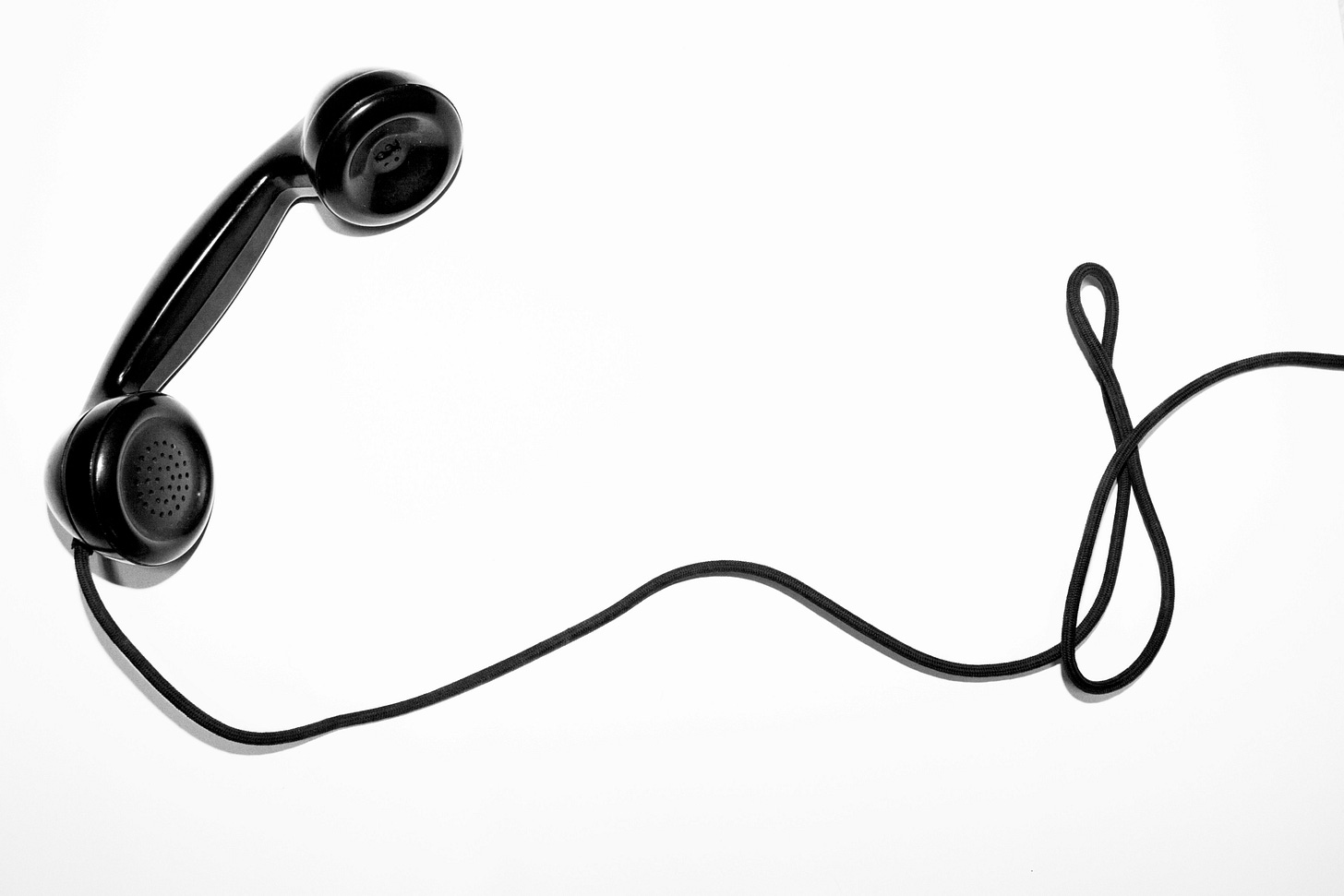The 4-1-1: Interviewing tactics, setting yourself up for success, and introducing The McMahon Group
Here are 4 ideas, 1 quote, and 1 resource to consider this week.
4-THOUGHTS FROM ME:
1. I did not go to college thinking I was going to write about pharmaceuticals and medicine. After graduating I returned to my hometown area where medical publishing companies flourished. My first positions were for a pharmaceutical industry business publication (assistant editor) and a physician trade newspaper (managing editor) for ophthalmologists (frequently writing about cataract surgery and laser vision correction). I learned about prescription and over-the-counter medications, the business of blockbuster drugs, as well as the Food and Drug Administration (FDA), indications (approved uses), off-label clinical uses for medications, and a little bit about the stock market. Efficiently interviewing medical and pharmaceutical key opinion leaders (KOLs) and other subject matter experts (SME) was part of the job.
2. For new articles (800 to1200 words), interviews usually can be brief, to the point (Ask the source: what is the biggest takeaway our reader must understand from this research?), and recorded. Take notes as well if possible. Be sure to inform the interviewee of the recording before you begin. For example, you can say something like: “I will be recording this interview to help ensure my accuracy.” The interviewees are usually accustomed to and appreciate this. Keep in mind that medical professionals speak quickly and use medical terminology that you might not yet be familiar with. The recording will help you catch details that you miss during the interview.
3. Medical writing from recordings can be tricky even with a transcript from a medical transcriptionist or an artificial intelligence (AI) transcription program because of the complicated concepts and terminology. Writers, especially new ones, can call or email sources for clarification or to double-check some information if necessary. But first, do some searching and see if the physician you interviewed has published a study on the topic. An abstract on The National Institutes of Health PubMed website database can offer clues to decipher your issues with words, spellings or medical meanings, and may answer your questions.
4. Once your final draft is written, check it carefully. Unlike traditional journalism, some medical publishers run the articles by their sources prior to publication for medical accuracy. Discuss this with your editor. In other cases, there is a physician medical editor who reviews the material prior to publication. Copiously working on your first few articles will take additional time, but the editors of these publications will appreciate your extra effort. Learn from the feedback you get. This will be helpful for the knowledge base you are building. The top sources in these fields are very well known and as a reporter in the industry you will interview some of them many times. So, you want to be careful that you are accurate and polite and do not unintentionally damage a relationship with an important source.
1-More Advice on Interviewing
Freelancers act as an extension of the publication, representing the brand. Editors rely on freelance writers to project a professional image and make the interviewing experience easy and comfortable for the doctors or other KOLs.
· When setting up an interview with a busy physician or their assistant, a pleasant disposition is helpful. Call or email with a concise message.
· Be flexible. Remember that these physicians are often “high volume”. (They see many patients per day, do surgery, and also have a lot of other professional/consulting/research commitments.)
· It is not unusual for a physician to request to do a 15-minute interview at 7:00 AM or 8:00 PM. I used to regularly interview 1 well-known doctor in the field at 12 PM PST and during his lunch hour (I could hear him eating, but I didn’t mind. He was a quick and terrific interview every time.)
Paul Wynn, a veteran medical writer and contributing health editor to U.S. News & World Report, Brain & Life magazine and New Physician magazine says: “One of my favorite things about being a medical writer is that you get to talk to some of the brightest minds in the scientific field and learn about their research before it's widely known.”
1-RESOURCE FOR YOU: McMahon Group
Starting this week, I will start to introduce some established medical publishers.
McMahon Group is a family-owned medical publisher. Now in its fifth decade, the company has several divisions which:
· publish newsmagazines and websites in several clinical specialties;
· work with sponsoring medical firms to create clinical educational projects;
· create custom media to heighten brand awareness; and
· work with clinical thought leaders to produce effective certified continuing medical education (CME).
Through its clinical newsmagazines, CME and custom-designed media, McMahon Group’s mission is “to increase medical knowledge and improve patient care.” Publications include Anesthesiology News, Gastroenterology & Endoscopy News, General Surgery News, Infectious Disease Special Edition, OR Management News, Pain Medicine News, Pharmacy Practice News, Specialty Pharmacy Continuum, Pharmacy Technology Report, and Clinical Oncology News.
Check them out.
Until next time,
Lisa
Break into Medical Publishing (Digital Book Coming soon!)
Photo courtesy Quino A


